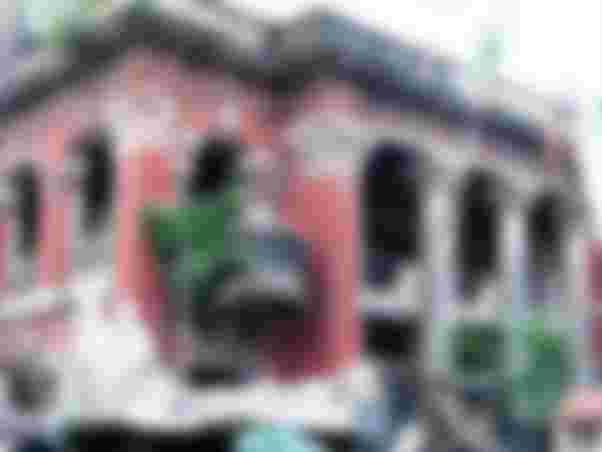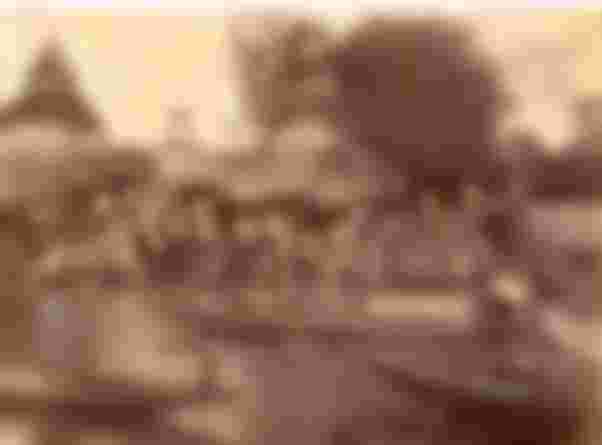Let's now ride the time machine for a while and walk around the alleys of old Kolkata. As I go around, I will learn about different people of that time, common words, rhymes, proverbs and sayings.
No, no, there will be no fare for this past trip, yes, but all you need for the trip is the interest to know, the interest to know the past, the interest to know your own roots.
Well then sit down and read on this white screen time machine.
"Banamali Sarkar's house, Govindaram Mitra's stick, Umichand's beard, Huzurimal's cow"
This rhyme is very popular among the people. Along with Banamali Sarkar, Govindaram Mitra, Umichand and Huzurimal, two other personalities of this rhyme are Gauri Sen and Hari Ghosh. All of them are some of the legendary people of Calcutta and its suburbs, whom the people of Bengal still remember through popular rhymes, proverbs and sayings.
Banamali government
He was the Dewan of Patna Resident of the British East India Company. He was later promoted to deputy trader as a reward for his loyalty to the company. He made a small fortune by holding this position, and between 1740 and 1750, the then Nawab of Bengal, Sirajuddaula, built the Prasadopam house in the Kumortuli area of North Calcutta, five years before the invasion of Calcutta.

From then on, the house of Banamali government became popular. Today, this street is known as Banamali Sarkar Street. Towards the end of the eighteenth century, potters from Shantipur, Krishnanagar, Navadwip and Materi gradually came here to make idols of various deities. That story is not to be picked up for another day.
Govindaram Mitra
When the British bought Calcutta, Gobindpur and Sutanuti from the Savarna Roy Chowdhury and deposited their zamindari here, they appointed Nandaram Sen as the first Indian Deputy Collector and later on when his tenure was over he appointed "Black Zamindar" Govindaram Mitra to the post.

He was one of the first Indian officers to be appointed during the British rule, and was known for his power, wealth and prowess. The mention of ‘chhari’ in the rhyme here is reminiscent of his mighty power. The Navaratna temple at Chitpur was also built by him, whose skyscraper, the Octarloni Monument, which is higher than what you know as the Shaheed Minar, was later demolished by a cyclone in 1737.
Umichand
When the British began to dominate the country, a Sikh businessman, Umichand, moved from Amritsar to Calcutta. He was the mediator between the company and the Nawab of Bengal. He later joined hands with Robert Clive to play a key role in the Palashi conspiracy, paving the way for the next 200 years of British rule.
However, at the end of the battle of Palashi, when Mir Jafar sat on the masnad of Bengal with Clive in his arms, Umichand's condition was like a rope around the neck of a very clever man because Clive, whom he believed had fallen into the trap of greed, refused to give him his due share. This whole incident is beautifully portrayed by the Bangladeshi writer Sikandar Abu Jafar in his play "Sirajuddaula".
Umichand: Where is my money?
Clive: What money?
Umichand: You signed the document, if Sirajuddaula loses, I will be given twenty lakh rupees.
Clive: Where is that document?
Umichand: You have faked. (Running to the throne) You judge. You do justice to the Nawab.
Clive: I don't know anything about it.
Umichand: You will know why sir. By dividing the treasury of the Nawab, you have got such lakhs of rupees. Everyone has read something or other as part. Just for me ...
(Cry)
Clive: (Strongly pulls Umichand's arm) You're dreaming Omichand, you see Khoyab.
Umichand: Seeing Khoyab? I will get twenty lakh rupees clearly written in the documents. You signed it yourself.
Clive: I would have remembered if I had signed. You are old - there is a noise in your head. Now you go on pilgrimage for a while - call on God. The mind will be better. (He handed Umichand over to Kilpatrick. He dragged him out. Umichand started shouting; my money, my money.)
Naturally, after doing business with the company for so long, he became the owner of some money and prestige. But in his last years he bequeathed all his wealth through will.
Huzurimal
Another Sikh businessman, Huzurimal, a friend of Umichand (brother-in-law) was famous for his philanthropic work. Hujurimal In 1780, there was an Armenian ghat on 55 bighas of land in the Boubazar-Baithakkhana area and two paved ghats at Kalighat.


Also built a reservoir. The reservoir was named "Padmapukur" because of the abundance of lotus flowers in it. It was also called Huzurimal Tank, hence the name Huzurimal Tank Lane.
Then let us know a little bit about the legendary people of Calcutta and Bengal.
Hari Ghosh
Hari Ghosh is the son of Mr. Gladwin , the translator of Abul Fazl's Ain-i-Akbari, the nephew of Mr. Varanasi Ghosh, and the son of Balaram Ghosh, the Dewan of the French Government at Chandannagar.
Hari Ghosh was the dewan of the fort of Munger of the British East India Company. At that time he had a deep knowledge of Bengali, Persian and English. He preferred to spend most of his earnings as a dewan through charity. Many students who came from far and wide to study at his house in North Kolkata had the opportunity to eat. Hundreds of idle people also used to hang out in his huge living room and take advantage of his generosity. Since then, the saying "Hari Ghosh's Adda" or "Hari Ghosh's Goyal" has been circulating. Today this street in North Kolkata is called Hari Ghosh Street.
Gauri Sen.
Bengalis who are not familiar with the proverb "Gauri Sen will give you money" may not be found in India.
There are two different views about Ener. Some think that his original residence was in the town of Bali in the present Howrah district, while others believe that he was a native of the town in the Murshidabad district. No matter where he speaks, even after many centuries of this Bengali, his reputation has remained forever in the spoken language of our Bengali.
Gauri Sen was the beloved son of Nandaram Sen, a sorne and import and export businessman. Growing up, he earned a lot of money by starting a family business and at the same time became famous in the merchant community. He also helped people in distress with a small amount of money. It is also heard that he is the one who settles the arrears of the people in need.
From this, word spread among the people, "Gauri Sen will pay the money".
Buss finished my words and wrapped the tree!
Thanks for reading this article for so long.
If you like it Upvote Can give.




Interesting article